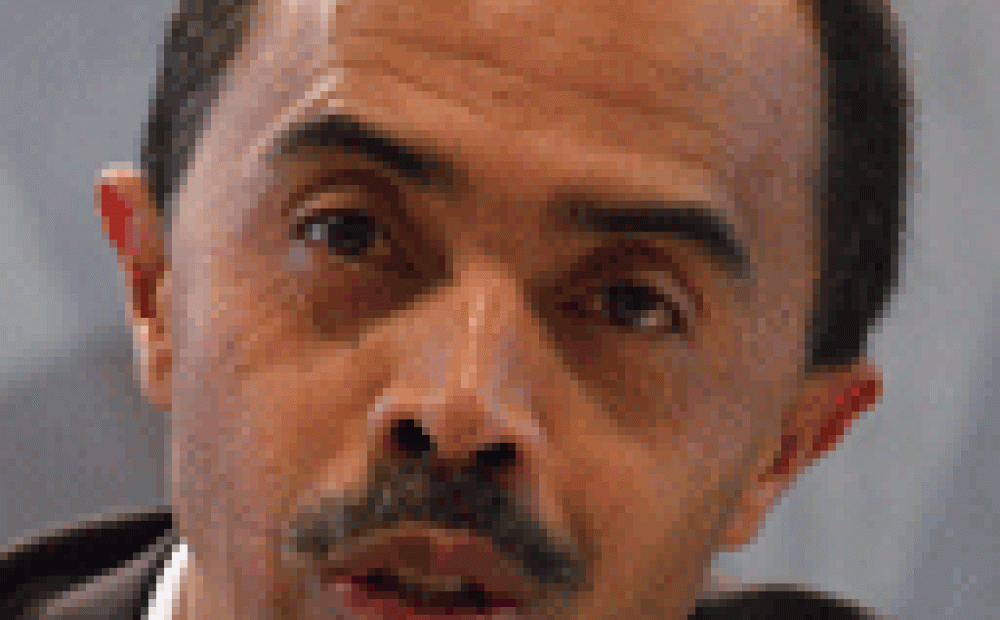Madagascar Action Plan 2007-2012: A Bold and Exciting Vision for Rapid Development

The goal of the 2007-2012 Madagascar Action Plan (MAP) is to "fight against poverty and to improve the economy," announced Madagascar's Minister of Agriculture, Livestock, and Fisheries Marius Ratolojanahary at a February 5, 2008, event hosted by the Woodrow Wilson Center's Environmental Change and Security Program (ECSP), the U.S. Agency for International Development (USAID), and the U.S. Forest Service. Ratolojanahary and other members of the Malagasy delegation outlined how the integrated MAP, which is based on the country's national vision of "Madagascar, Naturellement" and the UN Millennium Development Goals, will accelerate and coordinate the country's development. President Marc Ravalomanana addressed his development priorities for Madagascar in a 2003 speech at the Wilson Center and an article in ECSP Report 12.
MAP 2007-2012: From Poverty to Prosperity
Twenty-seven years under a socialist regime left Madagascar impoverished. The 2007-2012 MAP aims to hasten the country's development by seeking to meet the following eight commitments:
- Responsible governance;
- Connected infrastructure;
- Educational transformation;
- Rural development and a Green Revolution;
- Health, family planning, and the fight against HIV/AIDS;
- A high-growth economy;
- Cherishing the environment; and
- National solidarity.
The Malagasy delegation is taking the MAP on an international "road show" in order to encourage NGOs and governments to partner with Madagascar to help it achieve its development objectives. Madagascar needs "partners invested in us and our goals," said Ndranto Razakamanarina, the senior MAP adviser for environment and rural development.
Decentralization and Coordination
Although the MAP is a national plan, one of its objectives is decentralizing the Malagasy government. Yet decentralization poses certain challenges, such as ensuring that lessons from effective, innovative programs from one region or sector are shared with and implemented by others. Andry Ralijaona, secretary general for MAP, explained that the government will develop a databank gathering testimony from the Malagasy people regarding their experiences with MAP-related programs, which will enable the government to achieve the best results in all sectors and regions. "Connecting people is our strategy," said Ralijaona.
The MAP also seeks to connect the work done by Malagasy researchers more closely to the country's development priorities. Ratolojanahary explained that the government is encouraging research that addresses "the needs of the farmer" rather than "the needs of the researcher."
Integration: An Innovative Approach to Development
USAID has worked closely with the Malagasy government to design and implement the MAP. According to USAID's Lisa Gaylord, the closest U.S.-Malagasy partnerships have concerned the MAP commitments to governance; agriculture and rural development; health, family planning, and HIV/AIDS; and the environment.
Gaylord explained that while designing the 2007-2012 MAP, the Malagasy government and USAID underwent a paradigm shift: "We began asking ourselves, ‘How does one commitment relate to the other?' and ‘How does one commitment build on the other?'" The MAP aims to avoid a narrowly sectoral "stovepipe approach" to development, in which various goals are separate from one another, and instead integrates all eight commitments into a holistic plan. "This is one of the exciting things about MAP," said Gaylord. "As a U.S. government partner, we are excited about interacting in this innovative way with the Malagasy government in what I see as a new way of delivering services and development programs." U.S. Ambassador to Madagascar Niels Marquardt agreed that the MAP is truly innovative: "I had never seen anything like" it, he said.
Drafted by Liat Racin and edited by Rachel Weisshaar.
Speakers
Hosted By

Environmental Change and Security Program
The Environmental Change and Security Program (ECSP) explores the connections between environmental change, health, and population dynamics and their links to conflict, human insecurity, and foreign policy. Read more
